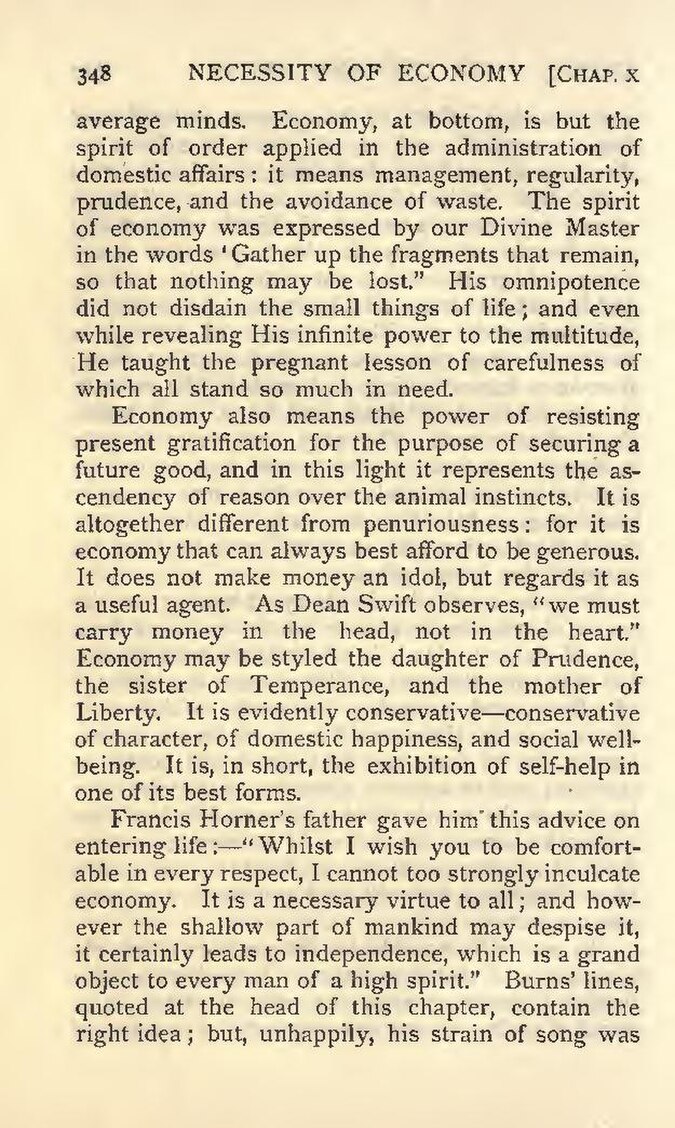average minds. Economy, at bottom, is but the spirit of order applied in the administration of domestic affairs: it means management, regularity, prudence, and the avoidance of waste. The spirit of economy was expressed by our Divine Master in the words 'Gather up the fragments that remain, so that nothing may be lost." His omnipotence did not disdain the small things of life; and even while revealing His infinite power to the multitude, He taught the pregnant lesson of carefulness of which all stand so much in need.
Economy also means the power of resisting present gratification for the purpose of securing a future good, and in this light it represents the ascendency of reason over the animal instincts. It is altogether different from penuriousness: for it is economy that can always best afford to be generous. It does not make money an idol, but regards it as a useful agent. As Dean Swift observes, "we must carry money in the head, not in the heart." Economy may be styled the daughter of Prudence, the sister of Temperance, and the mother of Liberty. It is evidently conservative—conservative of character, of domestic happiness, and social well-being. It is, in short, the exhibition of self-help in one of its best forms.
Francis Horner's father gave him this advice on entering life:—"Whilst I wish you to be comfortable in every respect, I cannot too strongly inculcate economy. It is a necessary virtue to all; and however the shallow part of mankind may despise it, it certainly leads to independence, which is a grand object to every man of a high spirit." Burns' lines, quoted at the head of this chapter, contain the right idea; but, unhappily, his strain of song was
